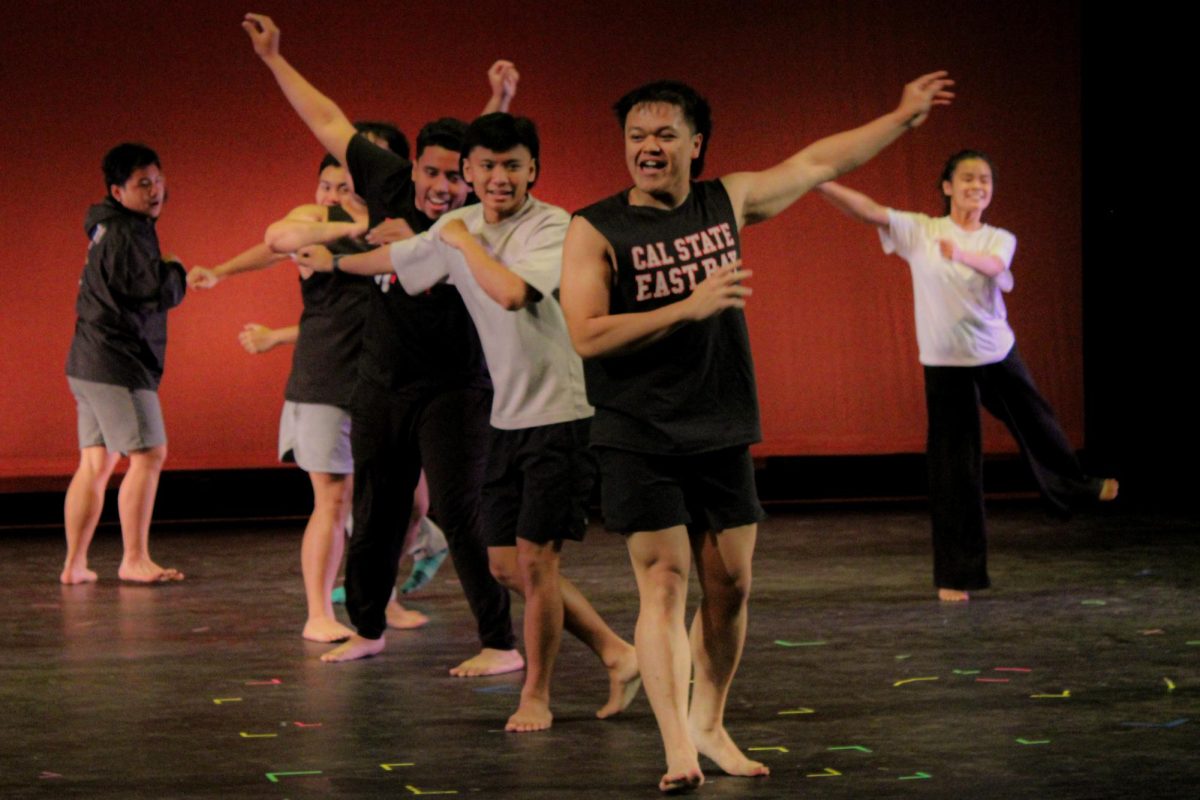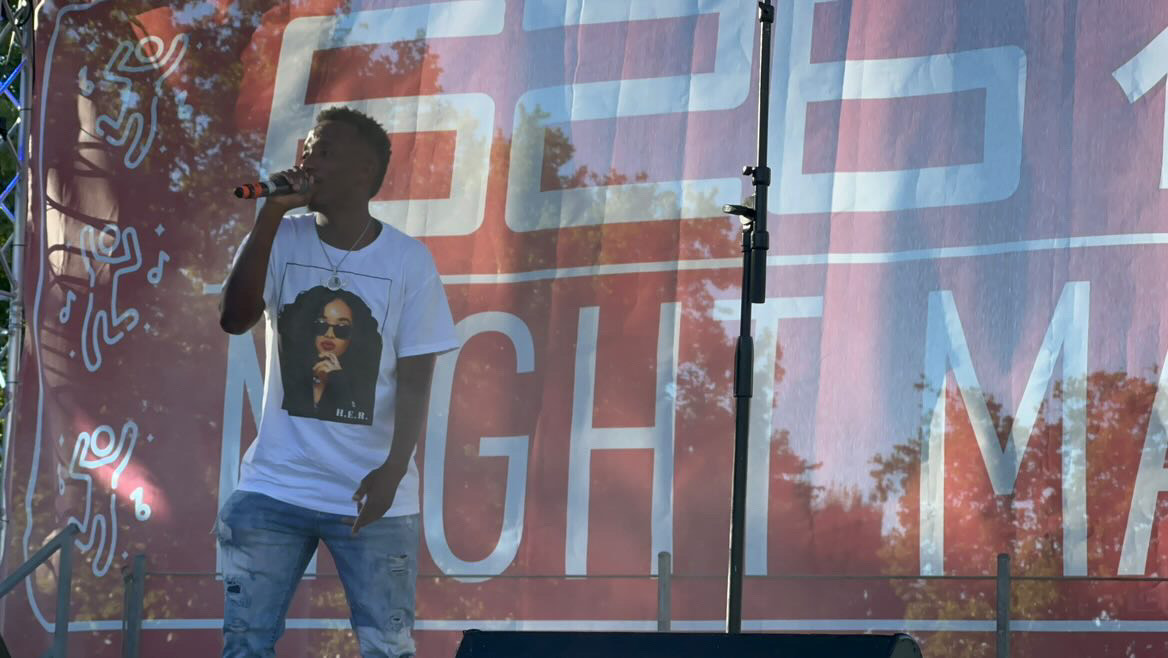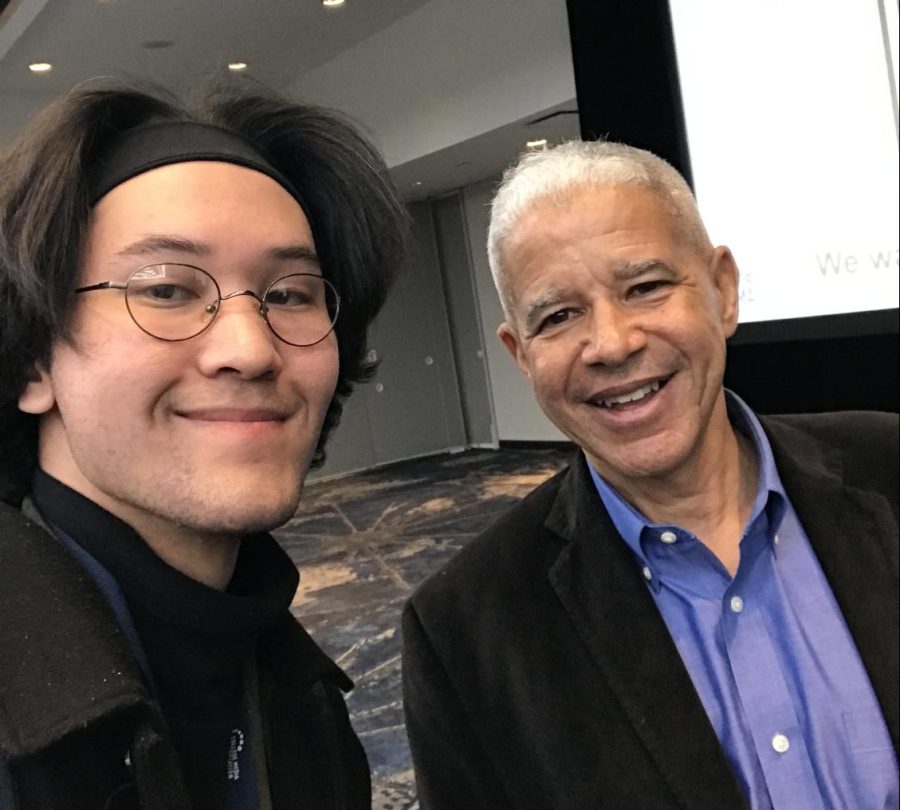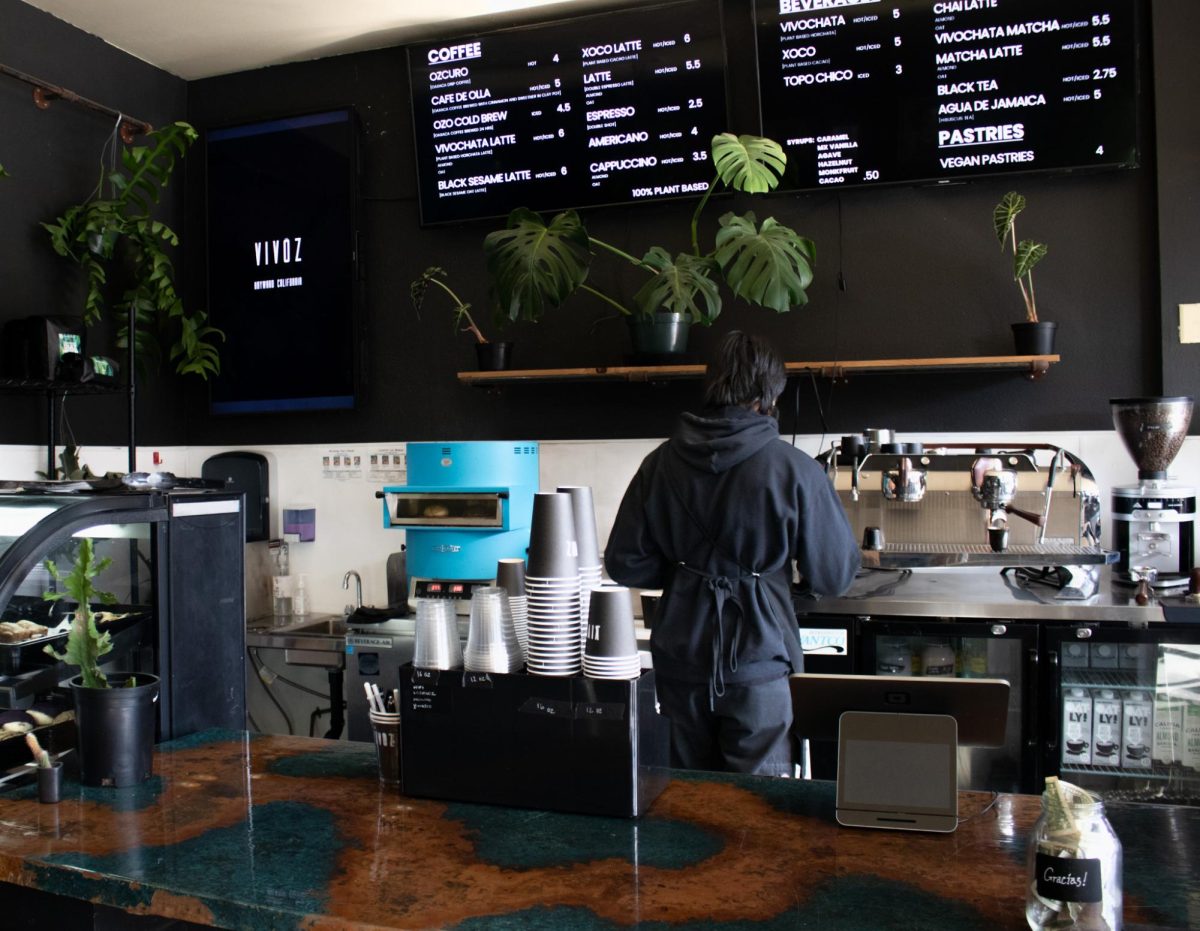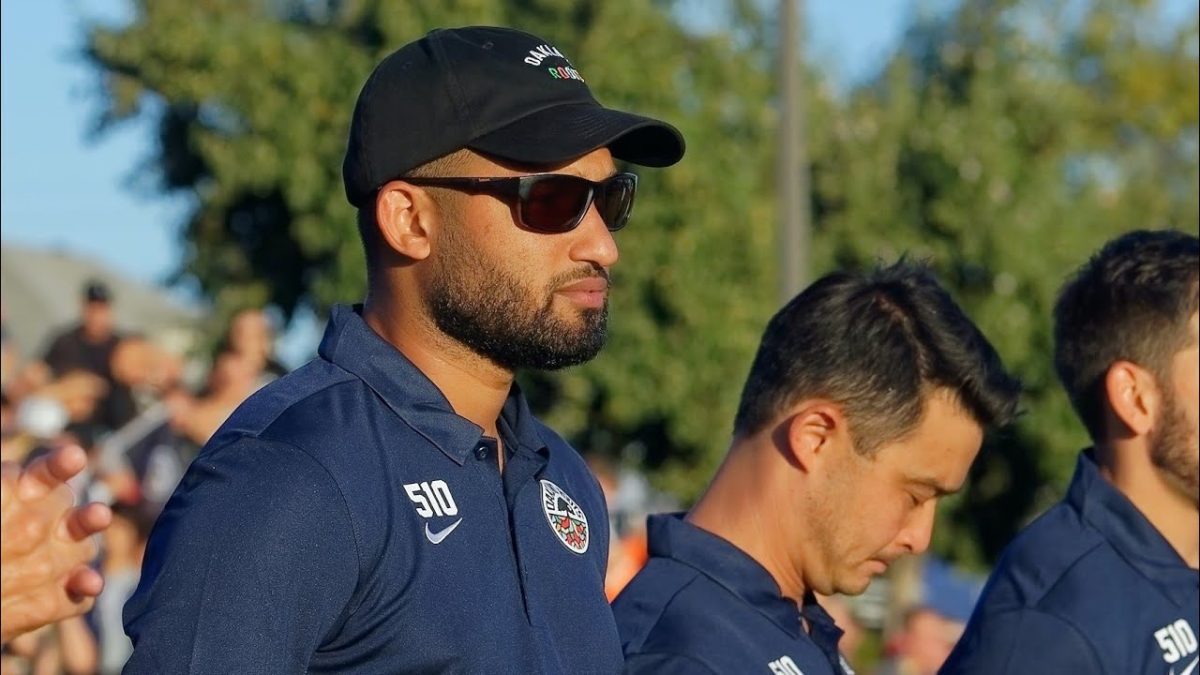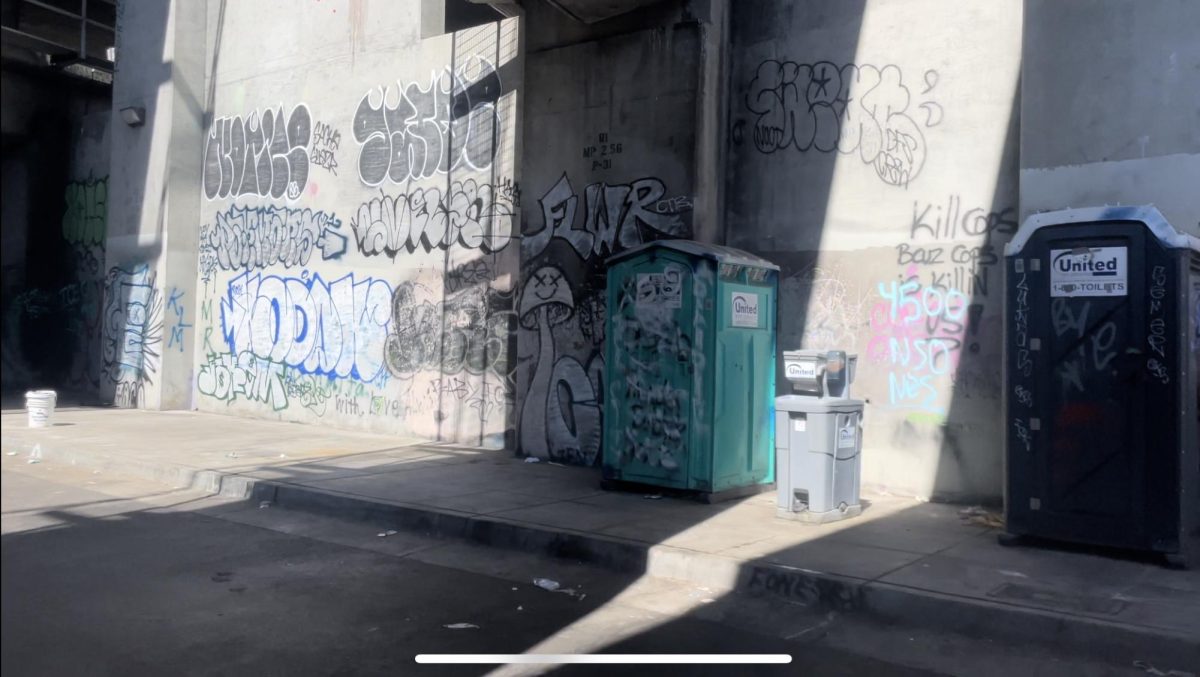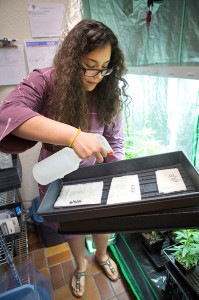
It has been almost a year since the federal raid of America’s first cannabis school. The 2012 surprise attack left Oakland’s Oaksterdam University in a whirlwind taking most of their assets and forcing them to relocate. But that hasn’t stopped them from growing and continuing to spread their message.
Not only are there business risks students have to face, but also political, social and legal risks, said Dale Sky Jones, executive chancellor at Oaksterdam. So they included additional legal classes in the advance courses that business owners can be aware of and learn the laws around the “cannabusiness.”
“It’s a family business. Especially when the raid happened. I was kind of a commuting-stay at home mom, because I had spent the last two years traveling the state for the statewide campaign Prop 19,” said Jones.
Jones is referring to the raid at their then 1600 Broadway Blvd location on April 2, 2012. It involved multiple government agencies including the IRS, DEA, ATF and Federal Marshals, who came in and tore through the building. “So when the raid happened I suddenly became an office mom again; save the school and bring the kid,” she said.
Jones remembers the day of the attack describing it in detail.
“They came in on a Monday at six in the morning; They went through the gift shop, the school, the museum, the dispensary, the nursery, [the founder’s] house and the house of a friend of ours,” said Jones. “The local cops weren’t actually told in advance so they were extremely unprepared and unaware that they were going to have several hundred people mobbing Broadway and shutting it down.”
Taking everything from the computers to the marijuana plants and course curriculum, the “Feds” left the school with nothing more than an empty building, and the pressure to reopen, Jones said.
The unaccredited educational facility founded by Richard Lee, a marijuana activist, opened in 2007 in Oakland, aiming to “provide students with the highest quality training for the cannabis industry,” according to the university website.
Now at its third location on Telegraph Avenue in Oakland, the school is teaching students how to prepare to defend themselves from federal prosecution, including training in the case of a raid, as part of their main curriculum. This comes following the most recent raid last April.
Raid preparation training and law enforcement encounter training are just some of the classes they added, explains Jones.

“How to handle those different interactions and how to set yourself up with success in advance, so that if you do become that defendant you are the most prepared defendant possible, but we are here to help defend your tool box so that you can defend yourself ultimately in the end,” the chancellor said.
The laws regarding marijuana are convoluted said Jones, and there are no educational resources for theses situations other than their new class curriculums. Marijuana use has increased over the last decade with now nearly 20 states having legalized it to the some degree, according to Pew Research website.
“Up until we started teaching classes, there was really nowhere to go for good information and more importantly what not to do,” said Jones. “There are so many confusing aspects about state versus federal law…. It’s important to start regulating it, most folks we find want to do it right, but no one is there to tell them how and that’s why we opened our doors.”
In their two-day basic course, students learn how to be a qualified patient, along with an aesthetics class. Covering the basic medical I.D. cards, doctor visits, successful law enforcement encounters and then ending in the more “fun” stuff, horticulture.
“How to grow your own medicine, how to grow good medicine, how to avoid pests and pathogens, and to make sure you are using the right nutrients,” said Jones. “Some people will use what you might use on a Marigold, well that’s not edible, you have to use what you might use on Tomatoes.”
On the second day of the course they focus on more advanced activities. Cooking with cannabis, extracts, learning how to extract the beneficial components, the benefits of vaporizing, and the science of cannabis. Which according to the executive chancellor is everyone’s favorite class.
Along with the basic 2-day class they also offer a 4-day advanced class, which has drawn students from not only out-of-state, but also internationaly.
“We found the weekend classes are more than about half out of state, and when we do the weekend classes we are starting to get international horticulture courses,” said Jones. “So a couple years ago we launched an indoor horticulture semester, because so many folks were focused on growing and don’t care about business.”
They also offer a semester, taking those courses and extending them into 13 weeks. Adding a horticulture lab each week and then getting a little more time each class makes these courses comprehensive. Each week also includes a grow lab demonstration with accomplished horticulturists who walk students week-by-week through growing their first garden, according to the Oaksterdam Website.
They have a core staff of about 25 instructors at their Oakland location and Jones said they could expand to about 100 advisors and staff that have and will teach for them again. Advocates that are right out of city chambers and research facilitates are coming in to teach, she explains.
“In some cases it’s young people, that are just trying to break into a new industry that they are captured by, probably just like the dot-com boom a decade ago,” said Jones.
Like a university, students receive a certificate of achievement for a basic or advanced seminar and they are graded, have to pass an exam and each class has a valedictorian. In order to pass the semester course they have homework, and a class project where they have to design a functional grow space.
With all of these new classes, she believes they are ready to take on any future unlawful attacks. Jones said the raids affect people who are in need of medication and noted that they are now aware of their rights.
“We are a first amendment fight now, we’re not a dispensary, were not affiliated with any other ‘cannabis’ businesses, so if they were to come raid us it would be extremely embarrassing for them. Not only are there an extremely small number of plants for display only, they belong to an MS patient so if you want to raid the black lady who’s been in a wheelchair for the last 12 years, come have at it.”





